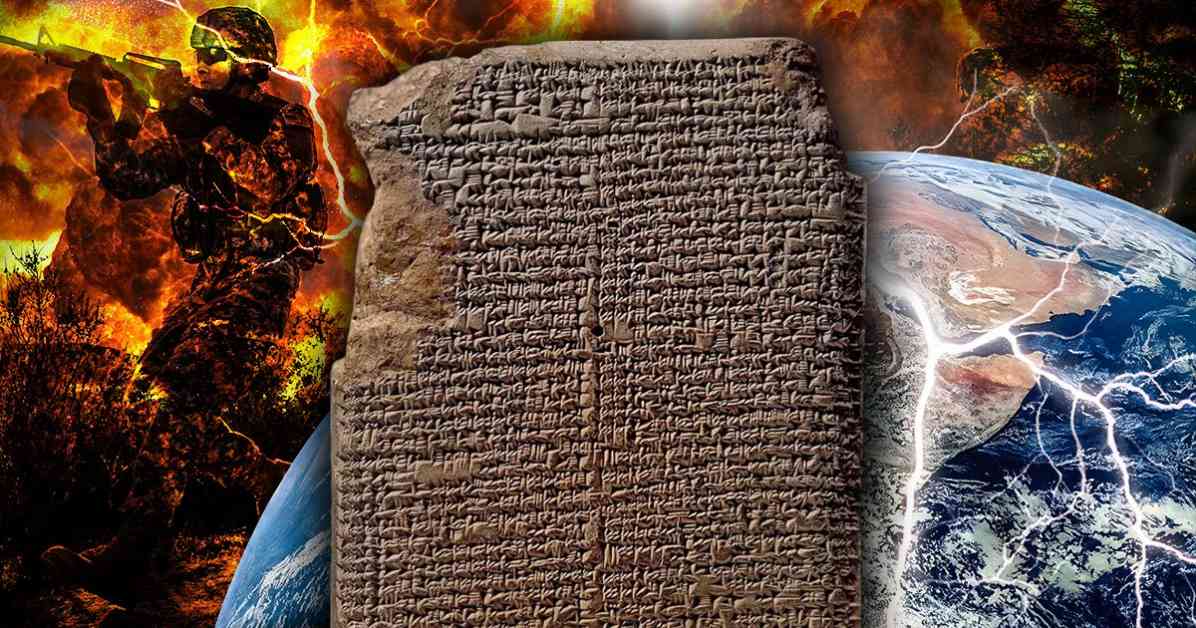The ancient Babylonians were known for their advanced knowledge in astronomy, mathematics, and writing. Recently, a 4,000-year-old Babylonian tablet containing 61 predictions about the future has been deciphered for the first time by experts. This artifact, found over a century ago in Iraq, sheds light on the ancient civilization’s beliefs and practices.
The Unveiling of Ancient Prophecies
The tablet, spread across four clay tablets, contains a variety of predictions ranging from the death of a king to natural disasters. One of the omens foretold a locust swarm in the spring that would decimate crops, leading to a dearth of food. This highlights the Babylonians’ understanding of the interconnectedness between environmental factors and human survival.
Eerie Predictions of War and Destruction
In addition to environmental disasters, the Babylonians also predicted revolts and attacks by foreign enemies. One translation from the tablet warns of rain and floodwater devastating the land, followed by an attack from an Elamite army that would lead to the destruction of the rebellious nation. These predictions reflect the Babylonians’ awareness of the political and military challenges they faced during their time.
The Fall of Kings and Empires
The tablet also contains prophecies about the downfall of leaders and nations. One prediction foresees the death of a famous king and the subsequent rise of his son to power, leading to war and desolation. This grim prophecy emphasizes the fragility of power and the cyclical nature of history, where empires rise and fall with time.
Astronomical Events and Omens
The ancient Babylonians were known for their expertise in astronomy and their ability to link celestial events with earthly occurrences. The tablet mentions lunar eclipses and their connection to natural disasters and historical events. For example, one omen predicts the death of a king and the destruction of Elam if an eclipse becomes obscured from its center all at once. This demonstrates the Babylonians’ belief in the influence of celestial phenomena on human affairs.
Historical Significance of the Tablet
The tablets are believed to originate from the city of Sippar, which thrived under the Babylonian empire from 1894 to 1595 BC. This ancient city, located in present-day Iraq, was a center of knowledge and culture during its time. The discovery of these tablets adds to our understanding of the Babylonian civilization and their practices related to divination and prophecy.
In conclusion, the deciphering of the ancient Babylonian tablet containing 61 predictions offers a glimpse into the beliefs and practices of one of the world’s oldest civilizations. The prophecies about war, natural disasters, and the fall of kings highlight the Babylonians’ awareness of the uncertainties of the future and their attempts to make sense of the world around them. As we continue to study and interpret these ancient artifacts, we gain valuable insights into the complexities of human history and the enduring quest to understand the mysteries of the universe.












